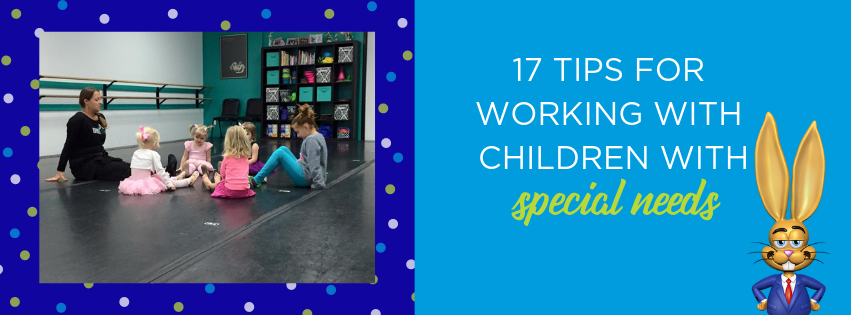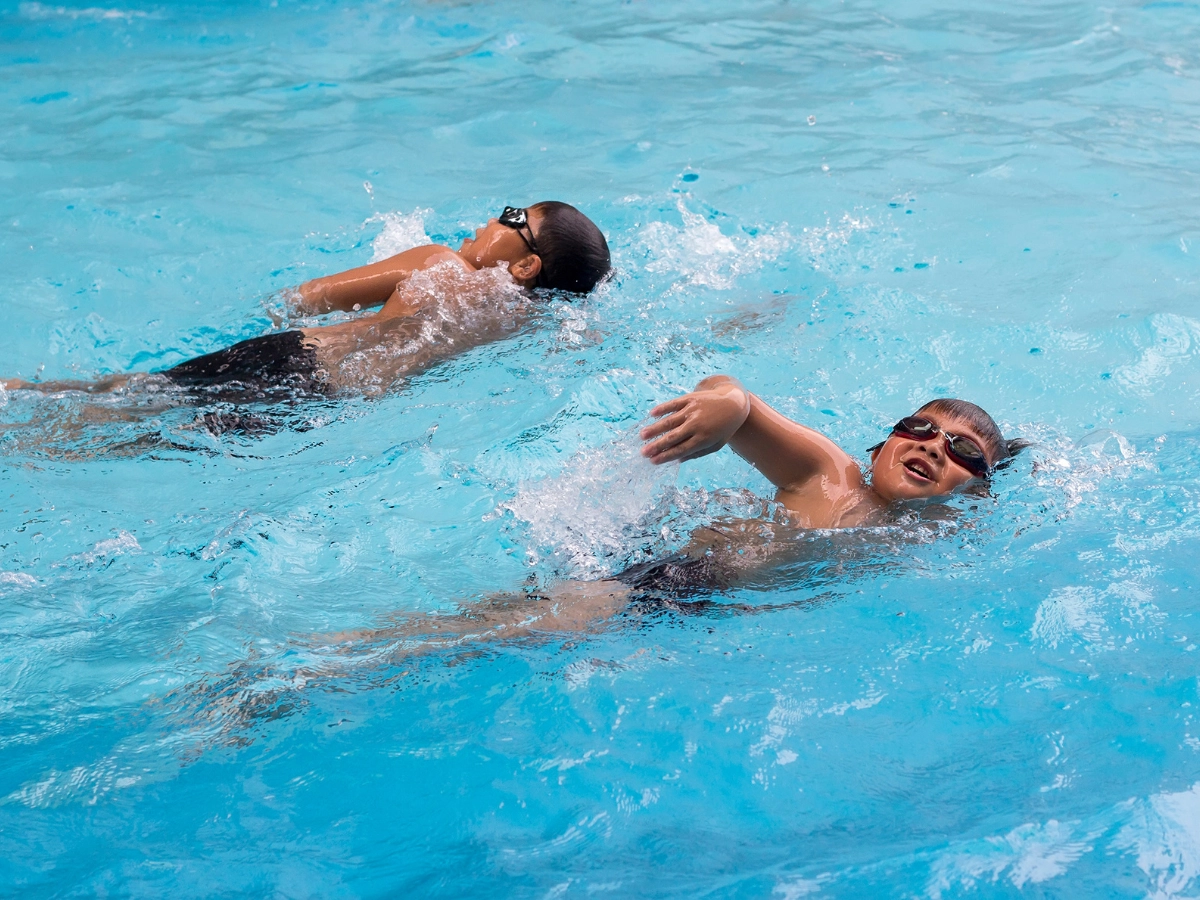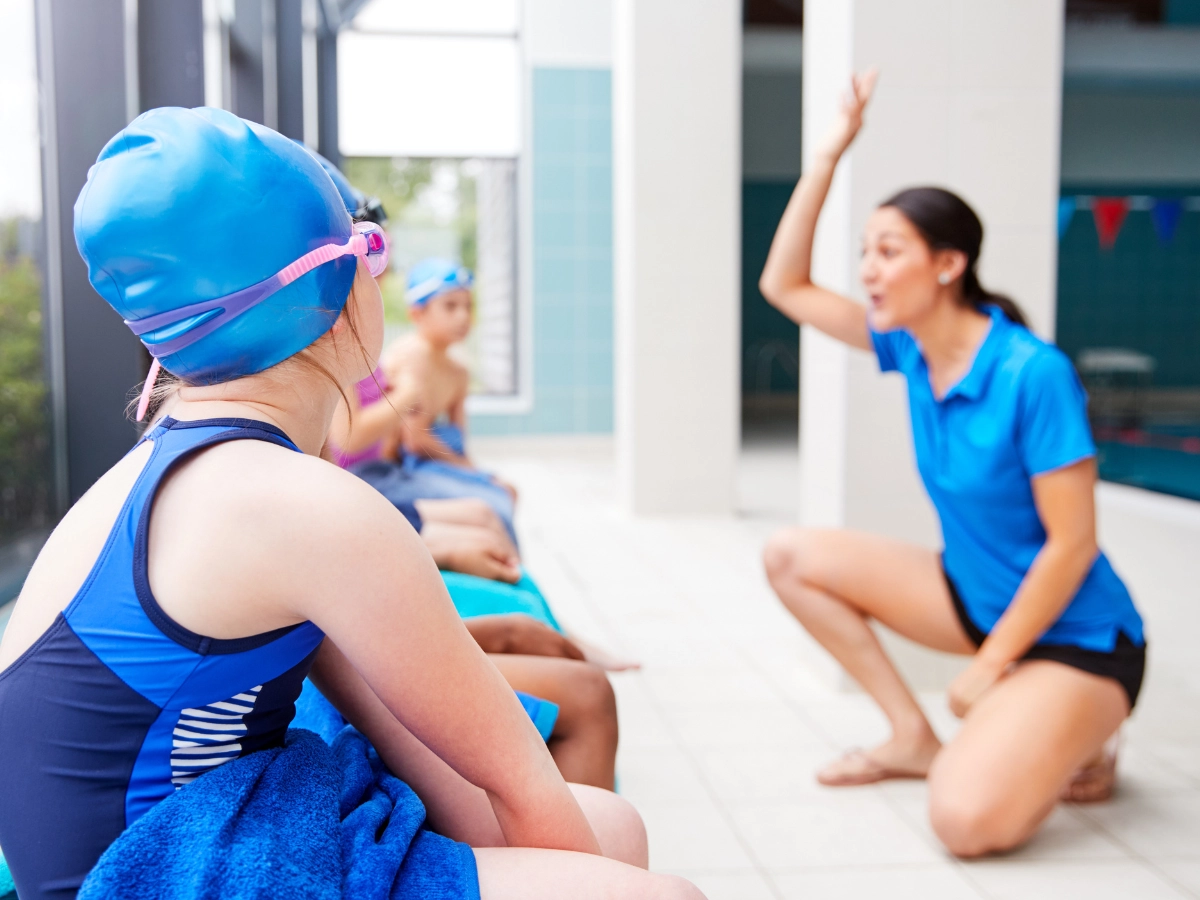Create the Best Possible Experience for Them and for You
Working with children with special needs is often daunting and overwhelming – with some situations seeming impossible. The importance of providing a safe, comfortable and engaging environment for them cannot be over-stressed. This is true especially when they’re involved in learning to make their bodies move in new ways. Body movement opens up opportunity for self-expression which also gives them access to important social, emotional and physical experiences that they otherwise would never have.
Creating a positive environment for the child with special needs doesn’t require that you be a specialist, but there are important factors to consider like patience, attention and the foresight.
This environment doesn’t just happen. It takes a little thinking, planning and acting on those thoughts and plans to help the special needs children in your classes get the most from their experience.
Here are some tips for working with special needs children:
- Parents are a great resource. Parents know their child better than anyone and can help you to understand how you might need to accommodate needs so stay in constant communication with them.
- Child to adult ratios are important. There is no magic ratio with special needs children. It is totally dependent on what their needs are. Be prepared to increase the adult numbers in order to give each child the attention they need.
- Share with volunteers. Provide parents or students who volunteer in your facility with information (like this tips list) that will educate them about working with special needs children.
- Observe and observe. How special needs children react to different sensory elements, how easily they take direction, how frustrated they get with learning something new, how communicative they are…this is all information that can be learned by simply taking the time to observe.
- Identify each child’s stimuli. A song, a toy or an activity may get positive response from a child. Knowing this and understand how to use it.
- Engage with their uniqueness. There is no template for working with special needs children because no two react and respond to stimuli in the same way.
- Don’t rush. Special needs children may require more or different explanations or descriptions for activities or questions. Take your time with activities and give them time to try.
- Praise effort. Always keep things positive and focused on effort instead of correctness.
- Be flexible. Things don’t always go as planned with any children and that especially true with special needs children. Have a back-up plan in case the children can’t do your first activity.
- Be consistent. ‘Changing it up to keep it interesting’ is NOT the way to work with special needs children. They depend on your consistency. It will help them to build confidence and blossom in your classes.
- Be ready to refocus. Have a plan for when your special needs children become frustrated and need to change to something new.
- Use common sense. Safety and physical and emotional comfort are what special needs children’s environment should be designed around.
- Be sure to have fun. Every child prefers fun activities to those that aren’t but this is even more important with special needs children. Focus on the positive to make the experience fun!
- Ask questions. Keep special needs children – even the quiet ones – engaged in activities and conversations by asking them questions periodically. Interest in what they think also boosts their confidence and makes them want to participate.
- Use the buddy system. Classes are great socialization opportunities. Pairing a special needs child with another child (with or without special needs) opens the window to meaningful reactions with other kids, learning from each other and making a new friend.
- Manage the stress. Working with special needs children puts stress on the instructor. Understand this and exercise your patience, flexibility and common sense.
- It’s worth it. Frustration and stress don’t compare to the satisfaction you feel when you see the joy of learning a skill or moving to music or being with her class on the face of the special needs child you teach.
Special needs children are children.
When you’re in doubt about how they’re feeling, ask them! Yes, they may require extra attention and patience but the experience they gain from your classes is just as valuable as that offered to any other child. Include them. Talk to them. Ask them questions. Praise them. Encourage them. Guide them. Let them try. Treat them like every other child.
Sources:
http://danceteacherconnect.com/10-tips-for-working-with-young-special-needs-dancers/
https://www.friendshipcircle.org/blog/2012/10/15/8-important-tips-for-working-with-a-special-needs-child/
https://www.rasmussen.edu/degrees/education/blog/working-with-special-needs-students/














